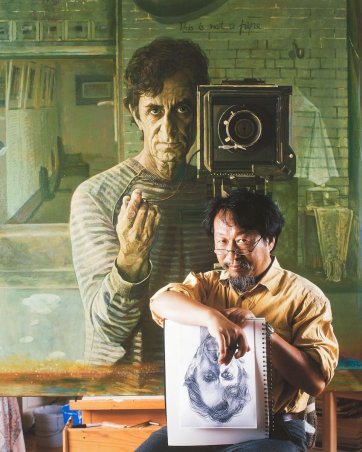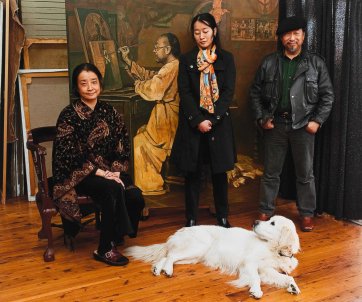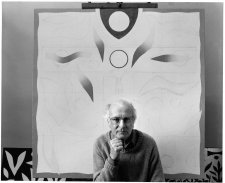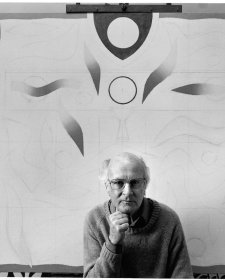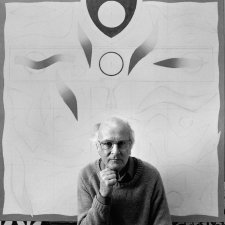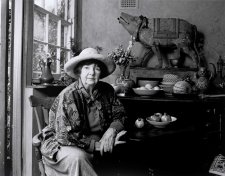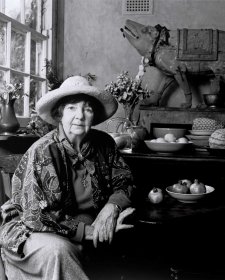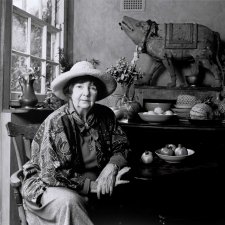I met Jiawei Shen after my book was published otherwise he would certainly be in it and unfortunately I met him too late. But when we met we got on extremely well and he asked whether he could paint me for the Archibald Prize and I was happy to concede to that. I mean getting asked by one of the greatest portrait painters in the world in my opinion. So he wanted to do this portrait of me and he positioned me with the old camera but put a photograph of mine, he did as a painting in the background. Basically, looks like me in the yellow house taking a portrait with my old camera. So there's this combined effect in the original portrait.
And then, when I went down to visit him to see the portrait for the first time in his studio, I was blown away by it and asked him whether I could do a portrait of him sitting in front of that portrait and he was more than willing to sit and he's a great subject. So, he got out a sketch that he'd done of me while doing that portrait in the first place and he sat down in front of the portrait he'd done of me. This is like portrait upon portrait, upon portrait. And then he had this kind of really whimsical idea because he understands that in the view camera the image comes through upside down. So he inverted the drawing of me that he was holding. So he's playing this little game where he's holding the drawing of me upside down, which is the view that I get of the subject in the camera and then everything else took off and we did this incredible portrait.
I worked in advertising, then worked for Martin Sharp. At that time I had also started teaching at the National Art School and in TAFE colleges. And I remember one occasion when a copy, young artist in one of my classes who was a painter. This guy said to me, "Hasn't there been photograph already been taken? What's the point in doing a photograph, you know? It's already all been done." And I thought, this is a really challenging question. All the others were sort of giggling and thinking this is gonna be fun and I said, "Yeah that's true, every photograph has already been taken, but it hasn't been taken by you, and the difference is that since those photographs were taken, the world has changed and nobody is gonna see that world from the same point of view as you. It can never be another person in your position, you're occupying that space. You're seeing that thing, you're standing in front of that leather box taking a photograph at it or that dog down the road and nobody else has seen that world the way you see it.
So yes, every idea has already been photographed but not by you." and then I said, "So why don't you get off your arse and go out there and take a few photographs and stop criticising the medium!" And the class cheering and going, "Yeah, yeah, yeah, let's do that!" So I thought that the best advice for a young photographer would be, to trust their own vision, to trust the world that's in front of them and one great quote, "If you've ever been in love, you will know how to be a photographer." And I thought that was a lovely thing to think, you know. I think it's also effective if you find a personal interest in it, you just follow that impulse and don't doubt what's in front of you. And you'll found out that often, as David Moore said, "A lot of what you see is being recognised subconsciously and you don't know until you look at it afterwards that there is value in it that you didn't notice at the time." So you know, just do it.
